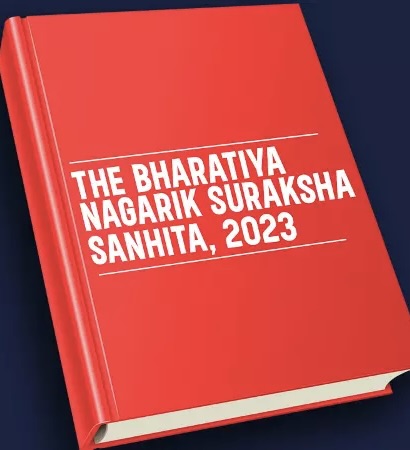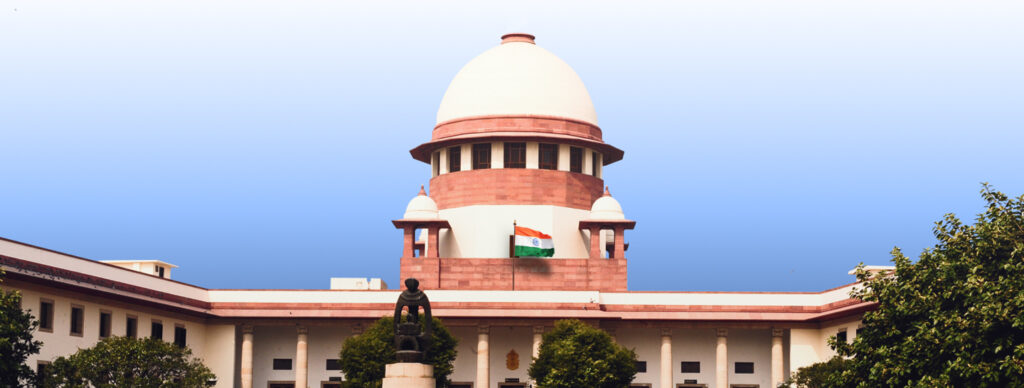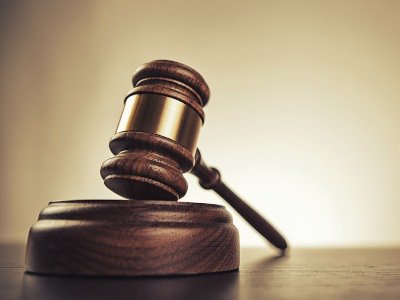Test your knowledge of the Bharatiya Nagarik Suraksha Sanhita (BNSS), 2023 with these 30 MCQs covering key reforms, legal provisions, and procedural changes.
The Bharatiya Nagarik Suraksha Sanhita (BNSS) in 2023 has brought about significant reforms in India’s criminal justice system, with the aim of streamlining procedures, enhancing efficiency, and protecting citizens from exploitation within the justice system. This article presents a comprehensive set of 30 multiple-choice questions (MCQs) based on the provisions of BNSS, designed to test and strengthen your understanding of the Act’s key changes, amendments, and provisions. These questions cover a wide range of topics, from police powers and procedural reforms to technological advancements and witness protection schemes, providing a holistic approach to BNSS and its implications in legal studies.
Here are 30 Multiple Choice Questions (MCQs) about the Bharatiya Nagarik Suraksha Sanhita (BNSS), 2023. These questions cover major aspects of the BNSS and can aid you in understanding the various legal reforms it brings to the criminal justice system.
1. What is the main objective of the Bharatiya Nagarik Suraksha Sanhita, 2023 (BNSS)?
a) To replace the Code of Criminal Procedure, 1973 (CrPC)
b) To increase the power of police officers
c) To enhance the protection of citizens from exploitation within the justice system
d) To increase the penalties for crimes
Answer: c) To enhance the protection of citizens from exploitation within the justice system
2. When will the BNSS come into effect?
a) January 1, 2024
b) July 1, 2024
c) December 1, 2024
d) March 1, 2025
Answer: b) July 1, 2024
3. Which provision of the BNSS allows the appointment of a police officer as a Special Executive Magistrate?
a) Section 12
b) Section 15
c) Section 23
d) Section 35
Answer: b) Section 15
4. What is the new limit for fines imposed by a First Class Magistrate under the BNSS?
a) ₹10,000
b) ₹50,000
c) ₹100,000
d) ₹1,00,000
Answer: b) ₹50,000
5. What provision of the BNSS protects elderly and infirm persons from arrest for crimes punishable with less than three years of imprisonment?
a) Section 25
b) Section 35(7)
c) Section 45
d) Section 12
Answer: b) Section 35(7)
6. Which of the following provisions of BNSS mandates the issuance of summons in electronic form?
a) Section 63
b) Section 76
c) Section 173
d) Section 84
Answer: a) Section 63
7. Under the BNSS, what can be served when a summoned person is not available?
a) A duplicate copy to any adult family member
b) A duplicate copy to the police officer
c) A duplicate copy to the nearest neighbor
d) A duplicate copy to the local village head
Answer: a) A duplicate copy to any adult family member
8. Which of the following crimes can result in a proclaimed offender declaration under the BNSS?
a) Crimes punishable with imprisonment of 3 years or more
b) Crimes punishable with imprisonment of 7 years or more
c) Crimes punishable with imprisonment of 10 years or more
d) Crimes punishable with imprisonment of 1 year or more
Answer: c) Crimes punishable with imprisonment of 10 years or more
9. What is introduced under Section 173 of BNSS?
a) The provision for mandatory forensic investigation
b) The provision for lodging an e-FIR
c) The provision for arresting absconding offenders
d) The provision for providing compensation to victims
Answer: b) The provision for lodging an e-FIR
10. What does Section 179(1) of the BNSS protect?
a) Right to legal representation
b) Rights of elderly and infirm witnesses
c) Rights of juveniles in conflict with law
d) Rights of the accused
Answer: b) Rights of elderly and infirm witnesses
11. Under BNSS, what is the timeframe within which a medical report of a rape victim should be forwarded to the Magistrate?
a) 48 hours
b) 72 hours
c) 7 days
d) 10 days
Answer: c) 7 days
12. Which section of the BNSS mandates the preparation of a witness protection scheme by each State Government?
a) Section 398
b) Section 458
c) Section 520
d) Section 355
Answer: a) Section 398
13. Under BNSS, what does Section 107 provide?
a) Power to hold ex parte trials against absconding offenders
b) Mandatory court hearings every day
c) Introduction of zero FIR
d) Power to impose community service as a sentence
Answer: a) Power to hold ex parte trials against absconding offenders
14. Which section of BNSS mandates audio-video recording of searches without a warrant?
a) Section 105
b) Section 185
c) Section 145
d) Section 145-A
Answer: b) Section 185
15. Under Section 258 of BNSS, what is the maximum time within which a judgment of acquittal or conviction should be passed after the completion of arguments?
a) 15 days
b) 30 days
c) 45 days
d) 60 days
Answer: b) 30 days
16. Which section of the BNSS provides for the daily conduct of trials or inquiries?
a) Section 346
b) Section 173
c) Section 185
d) Section 258
Answer: a) Section 346
17. What does Section 530 of the BNSS address?
a) Appointment of Special Executive Magistrates
b) Trial proceedings held in electronic modes
c) Witness protection schemes
d) Submission of FIRs electronically
Answer: b) Trial proceedings held in electronic modes
18. What is the purpose of Sections VI, VII, and VIII of the BNSS?
a) To regulate trial procedures
b) To provide for attachment of the accused’s property in financial offences
c) To extend the time for investigations
d) To provide for compensation to victims
Answer: b) To provide for attachment of the accused’s property in financial offences
19. What provision has been deleted from the CrPC in the BNSS regarding Metropolitan Magistrates?
a) Provisions relating to the powers of the District Magistrate
b) Provisions dealing with ‘Metropolitan areas’ and ‘Metropolitan Magistrates’
c) Provisions related to Juvenile Courts
d) Provisions regarding the appellate jurisdiction of High Courts
Answer: b) Provisions dealing with ‘Metropolitan areas’ and ‘Metropolitan Magistrates’
20. Which of the following is NOT a key change introduced by the BNSS?
a) Electronic filing of FIRs
b) Protection of elderly witnesses
c) Abolishing the post of Judicial Magistrate of third-class
d) Increasing the powers of the State Government in arresting accused persons
Answer: d) Increasing the powers of the State Government in arresting accused persons
21. What is the maximum extendable period for a judgment to be delivered post-arguments, as per Section 258 of the BNSS?
a) 15 days
b) 30 days
c) 45 days
d) 60 days
Answer: c) 45 days
22. Which provision of the BNSS addresses the videography of search and seizure?
a) Section 115
b) Section 105
c) Section 185
d) Section 175
Answer: b) Section 105
23. What does Section 12 of the BNSS focus on?
a) Filing of an e-FIR
b) Provisions related to maintenance proceedings
c) Technological upgrades for the justice system
d) Provisions related to witness protection
Answer: c) Technological upgrades for the justice system
24. Which section of the BNSS empowers the police to conduct zero FIR?
a) Section 173
b) Section 180
c) Section 35
d) Section 107
Answer: a) Section 173
25. Which section of the BNSS protects the right of witnesses who are elderly or infirm?
a) Section 179(1)
b) Section 145
c) Section 35
d) Section 105
Answer: a) Section 179(1)
26. Under the BNSS, what is required for the e-FIR to be valid?
a) The signature of the police officer
b) The signature of the complainant within 3 days
c) The physical presence of the complainant
d) The magistrate’s approval
Answer: b) The signature of the complainant within 3 days
27. What change has been made to Section 144-A of the CrPC in the BNSS?
a) It has been revised to provide more powers to District Magistrates
b) It has been deleted
c) It has been made applicable to only metropolitan areas
d) It has been expanded to include power to arrest
Answer: b) It has been deleted
28. Which section of the BNSS deals with the forensic investigation requirement for crimes punishable with 7 or more years of imprisonment?
a) Section 176
b) Section 185
c) Section 107
d) Section 105
Answer: a) Section 176
29. Under the BNSS, absconding offenders can be tried ex parte as per which section?
a) Section 107
b) Section 176
c) Section 125
d) Section 107
Answer: a) Section 107
30. Which section of the BNSS discusses mandatory timelines for investigations in criminal cases?
a) Section 115
b) Section 398
c) Section 173
d) Section 173(1)
Answer: c) Section 173
For more content stay tuned with LawHathi.




Your article helped me a lot, is there any more related content? Thanks!